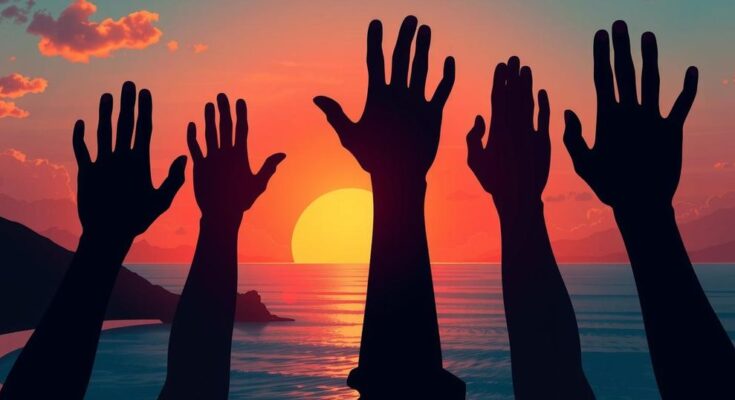In Guayaquil and across Ecuador’s coastal regions, numerous collectives and movements have tirelessly organized for decades to assert their dignity and human rights. Indigenous peoples have been fighting for their rights for centuries. Unfortunately, these areas are often portrayed solely as violence hotspots due to escalating criminal group confrontations, overshadowing the vibrant continued efforts for justice and human rights by local communities.
The rampant violence in Guayaquil, notably in early January, has provided President Daniel Noboa with justification for imposing a state of emergency, leading to extensive police and military operations. These measures have sparked allegations of human rights violations, including arbitrary detentions, lack of due process, and possible torture. Such actions have raised serious concerns about the rights of those detained and the safety of human rights defenders.
In this challenging atmosphere, Guayaquil’s collectives have intensified their activism, transforming adversity into community-strengthening initiatives. Their collective resistance against stigmatization from high-ranking officials deserves acknowledgment and support. This document, while not exhaustive, aims to celebrate the vital work of these organizations in defending the rights of individuals, communities, and the environment on Ecuador’s coast.
Committee of Relatives for Justice in Prisons: Formed by families of prisoners amidst Ecuador’s escalating prison crisis, this committee advocates for the rights of incarcerated individuals. Since early 2018, horrific massacres have claimed over 680 lives within prisons due to inadequate state policies. Recognizing the state’s responsibility, the committee seeks justice for their lost loved ones and comprehensive reparations for affected families.
Guayas Community Network of Defenders of Nature and Human Rights: Founded in Guayaquil and Durán, this network empowers community leaders in defending various rights. With training in key areas like human rights and gender, the network has significantly contributed to community welfare, food security during the pandemic, and active advocacy against human rights violations by monitoring police actions under state of emergency protocols.
Social Youth Movement of Guayaquil: Encompassing over 300 young activists from peripheral areas, this movement champions racial, class, and gender justice. Born from a desire for thoughtful political engagement, the movement focuses on youth leadership and cultural expression, advocating for rights through art and mobilization. Collaborative efforts have included campaigns for comprehensive sexual education in the educational system, seeking to pave the way for inclusive practices in Guayaquil.
Socio Vivienda for Decent Housing: A grassroots organization defending the right to decent housing in violence-plagued sectors of Guayaquil. Families relocated during earlier ecological initiatives now face eviction threats without ownership documentation for their homes. With CDH Guayaquil, they are petitioning the Constitutional Court for secure housing rights, hoping to set a precedent for future housing policies.
Ancestral Coastal Communes Defense: The Bajada de Chanduy commune is at the forefront of defending its communal lands against illegal exploitation by companies. Their fight has intensified with the government’s plan to build a mega prison, threatening their traditional lands and community life. Alternatively, Olón, another significant ancestral community, is protesting environmental risks caused by construction projects. They have demanded respect for collective rights amidst rigorous governmental opposition.
Ecuadorian collectives in Guayaquil are mobilizing to defend human rights amid escalating violence and governmental repression. The Committee of Relatives for Justice, youth movements, and community defenders are actively advocating for dignity, decent housing, and environmental rights. Their ongoing struggles exemplify resilience in the face of adversity and unjust treatment by authorities.
The resilience of collectives in Ecuador’s coastal regions against violence and state repression is commendable. Each group’s determination, whether concerning housing rights, youth empowerment, or environmental preservation, underscores a broader fight for human dignity. Continued support and recognition from authorities are critical in ensuring their safety and furthering their advocacy efforts.
This article highlights ongoing efforts by various collectives and movements in Guayaquil and Ecuador’s coastal areas to advocate for human rights amidst escalating violence and state repression. The struggles of Indigenous communities, youth organizations, and community networks illustrate the complexities of human rights work in the face of governmental neglect and criminal activity. Despite the challenges, these groups persist in their fight for dignity and equality.
Original Source: www.amnesty.org



